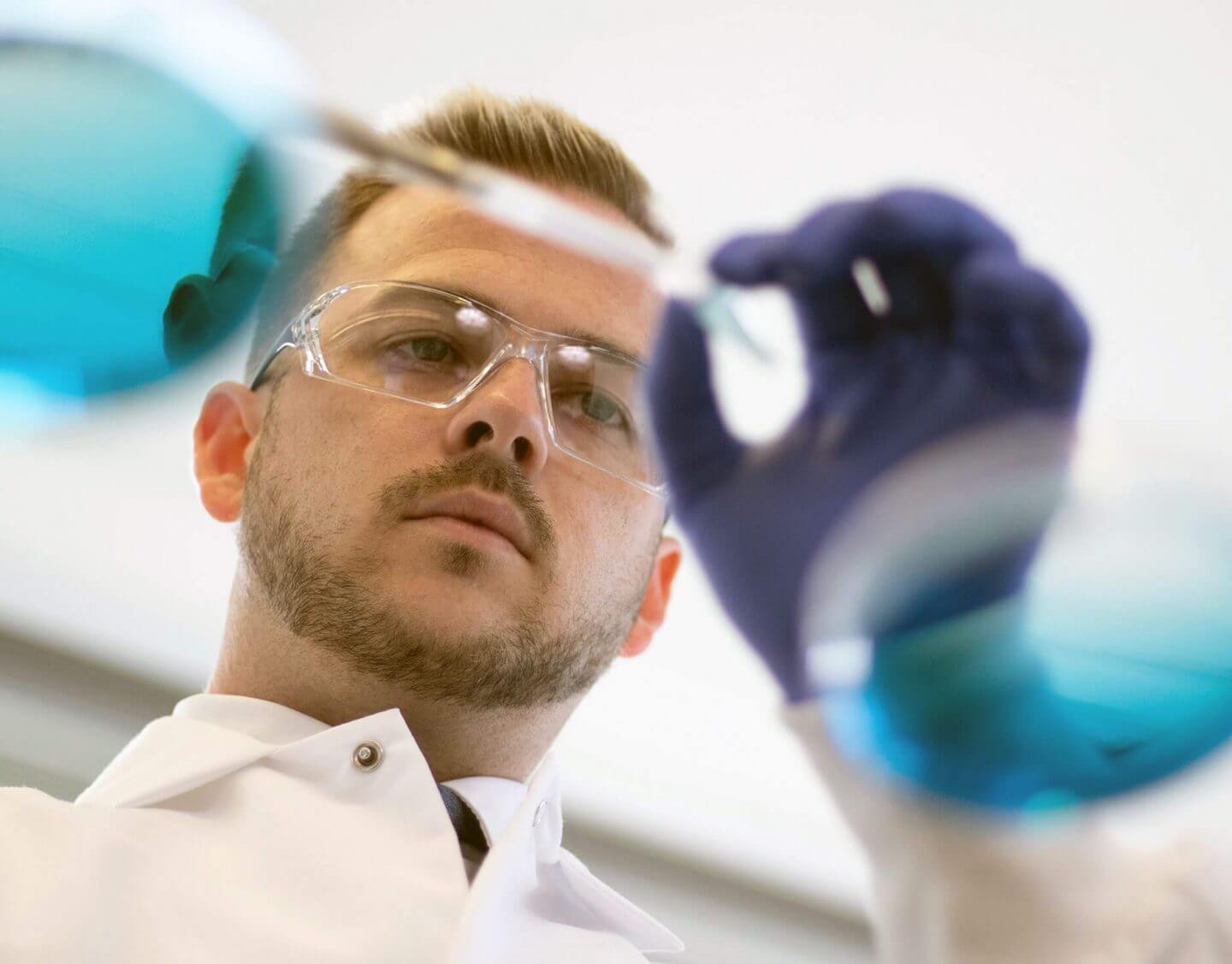Determined to Overcome Huntington’s
Scientists at Scripps Research are diligently investigating the mechanisms that underlie this devastating hereditary disorder.
Huntington’s disease attacks the mind and the body.
Get CuriousAt Scripps Research, we seek novel strategies to prevent or delay the onset of Huntington’s.
People with Huntington’s disease inherit a damaged protein that is complicit in destroying brain cells. As the neurons deteriorate, people lose motor control and exhibit jerky, involuntary body movements. Their mental abilities decline and, often, they experience entire personality changes, making them strangers to their family and loved ones. Currently, no treatments exist to stop or reverse Huntington’s disease. We’re determined to change that. The neuroscientists at Scripps Research have made it their mission to truly understand this degenerative condition and then translate that understanding into powerful new medicines.
With state-of-the-art imaging, we can study the progression of Huntington’s in laboratory models and actually watch the disease spread from neuron to neuron. Such unprecedented insight is helping us pinpoint ways to disrupt this disease and restore function to damaged nerves. Other cutting-edge technology enables our researchers to selectively modify the instruction manual encoded by our DNA. It may soon be possible to interfere with the genetic triggers that lead to Huntington’s.
By tackling this disease from all angles, our scientists hope to transform a devastating diagnosis into a manageable—or maybe even curable—condition. We want to give patients with Huntington’s the long, healthy life they deserve.

Targeting the Source of Huntington’s Disease
-
Toxic Transport
Our researchers discovered how a toxic protein linked to Huntington’s uses nanotubes to travel between neurons.
-
Decipher and Disrupt Signaling
After identifying a signaling pathway that focuses toxicity in the brain’s striatum, researchers are looking to disrupt it.
-
Restore Metabolism, Protect Neurons
We have identified—and are advancing—compounds that protect nerves by restoring healthy metabolism to cells.
-
Genetic Messengers
By targeting the messengers of our genetic blueprint, chemical biologists are pioneering ways to modify Huntington’s disease.